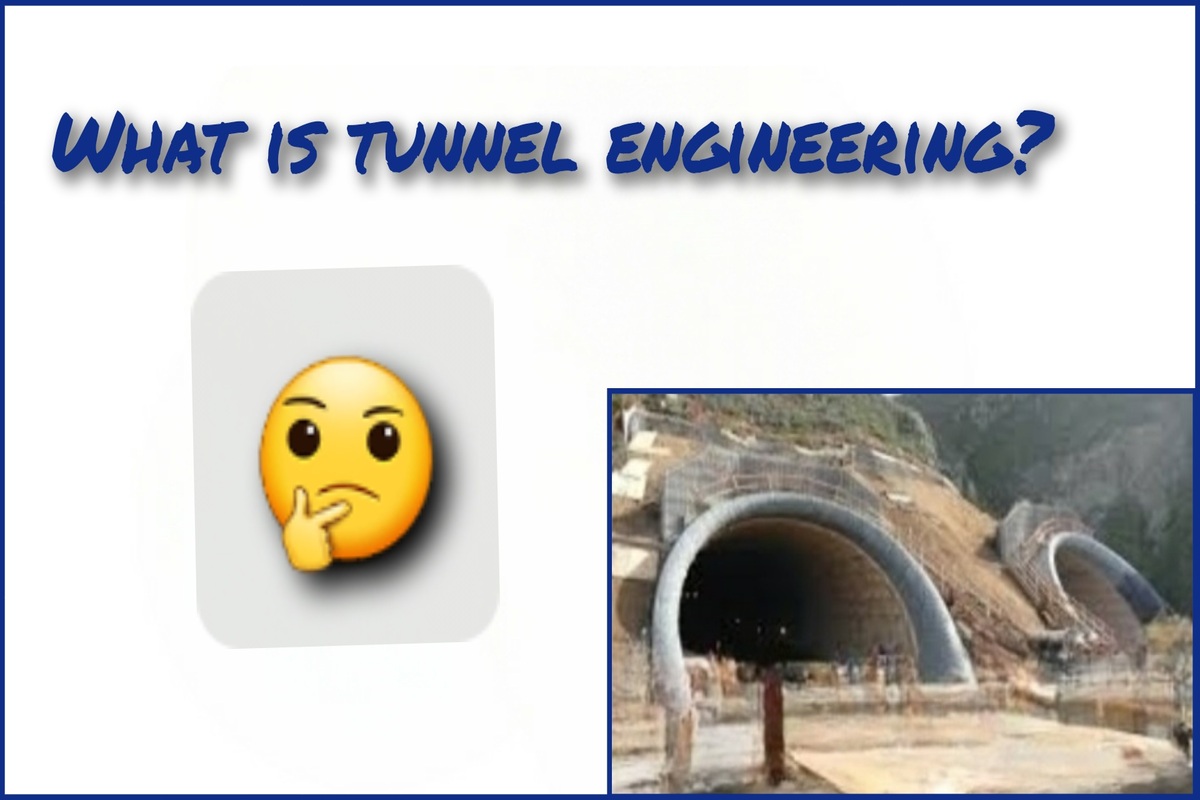Tunnel engineering is a part of civil engineering. A civil engineer specializing in the field of tunnel construction is known as a tunneling engineer.

Table of Contents
Definition
The design, management and construction of tunnels is known as tunnel engineering.
What Is Tunnel Engineering?
Tunnel engineering is when people dig tunnels underground. It’s important in places that are growing quickly because it helps connect places without ruining the things already there. There are different ways to dig tunnels, but it’s always important to know about the ground and how it will affect the tunnel.
Tunnel engineering can be really cool to work on because you get to help make something underground. But it’s also hard and can be dangerous.
Tunnels make it easier and safer for people to travel between places, which makes life better for everyone. You can learn about tunnel engineering by working with someone who knows a lot about it and always being ready to learn new things.
Importance Of Tunnels In Modern Infrastructure
Tunnels are very important for modern infrastructure. Tunnels allow us to build roads, trains, and other forms of transportation through difficult places such as mountains or busy cities.
Tunnels are also safer than regular roads because they keep people and vehicles separate, and they can protect the environment by reducing noise and pollution. Tunnels are also used to transport important things like water or electricity underground, which helps keep them safe and functioning properly.
Scope Of Tunnel Engineering
Tunnel engineers are responsible for designing tunnels that are safe, functional, and efficient. They must consider factors such as geology, topography, hydrology, and seismic activity when designing tunnels.
Tunnel engineers oversee the construction of tunnels, which involves excavating the tunnel, installing support systems, and lining the tunnel walls. They must ensure that the construction is done safely and efficiently.
Tunnel engineers are also responsible for maintaining tunnels, which includes inspecting tunnels for damage, repairing any damage, and ensuring that the tunnels are safe for use.
Safety is a critical aspect of tunnel engineering. Tunnel engineers must ensure that tunnels are designed, constructed, and maintained to high safety standards to prevent accidents and protect the public.
Tunnel ventilation is an essential aspect of tunnel engineering. Tunnel engineers must design ventilation systems that provide fresh air and remove smoke and toxic gases in case of a fire.
Tunnel lighting is also an important aspect of tunnel engineering. Tunnel engineers must design lighting systems that provide adequate visibility for drivers and pedestrians.
Tunnel engineers must design drainage systems that prevent water from accumulating in the tunnel and causing damage.
Summing Up
Tunnel engineering is a booming field. It gave new opportunities to civil engineers to develop their career. Tunnel engineering is one of the fastest growing engineering fields. The future of tunnel engineering looks bright.
Faqs
Cut-and-cover, drill-and-blast, and tunnel boring machines (TBMs).
Geology, hydrology, ventilation, and fire safety.
